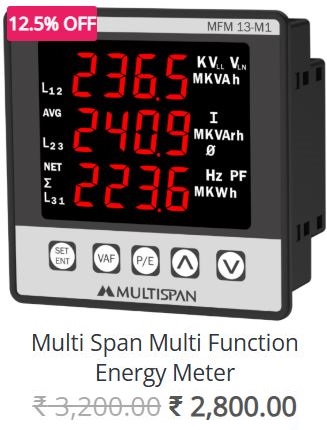What Are Plant Instruments?
Plant instruments are devices used to measure, control, and monitor various parameters within industrial plants. These instruments play a crucial role in process control, automation, and safety systems. They can be broadly categorized into measuring instruments (which provide data about specific physical properties), control instruments (which manage the operation of machinery or systems), and safety instruments (which protect the plant from hazardous conditions).
The accuracy, reliability, and real-time data provided by these instruments are fundamental to maintaining smooth and safe operations in any plant environment.
Key Instrumentation Used in Plant Operations
- Flow Meters
- Real-World Application: Flow meters are critical for measuring the flow rate of liquids and gases in plant operations. Whether in the chemical, oil and gas, or water treatment industry, accurately measuring fluid flow is essential for ensuring processes are running as intended.
- How They’re Used: Flow meters are used in applications like monitoring the flow of raw materials through pipelines, controlling mixing processes, and ensuring the proper distribution of gases in combustion chambers. For example, in a wastewater treatment plant, flow meters help track the flow of water through various treatment stages, ensuring the process is efficient and that each step receives the proper volume of fluid.
- Benefits: Accurate flow measurement ensures that products are manufactured with the correct specifications, minimizes waste, and helps in optimizing energy consumption.
- Pressure Transmitters
- Real-World Application: Pressure transmitters are used to measure the pressure within systems such as tanks, boilers, and pipelines. These devices are essential in industries like petrochemicals, pharmaceuticals, and power generation.
- How They’re Used: In a power plant, pressure transmitters help monitor the pressure within boilers and steam lines. They also ensure that compressors, pumps, and valves operate within their required pressure ranges, preventing equipment failure and ensuring safety.
- Benefits: Proper pressure control ensures the safety of operations and prevents equipment failure, leakage, or system downtime due to pressure imbalances.
- Temperature Sensors
- Real-World Application: Temperature sensors are used in almost every industrial process to monitor and regulate the temperature of equipment, chemicals, and products. In industries like food processing, petrochemicals, and steel production, precise temperature control is essential.
- How They’re Used: In the food industry, temperature sensors ensure that cooking, pasteurizing, and refrigeration processes are carried out at the correct temperatures. In chemical processing plants, temperature sensors are used to control reaction rates, ensuring that chemicals do not overheat and create dangerous conditions.
- Benefits: Accurate temperature control enhances product quality, ensures energy efficiency, and prevents overheating or freezing of materials.
- Level Sensors
- Real-World Application: Level sensors measure the level of substances like liquids, solids, or powders in tanks, silos, and containers. These sensors are commonly used in industries such as food and beverage, pharmaceuticals, and oil and gas.
- How They’re Used: In a chemical plant, level sensors are used to monitor the levels of chemicals in storage tanks, ensuring that inventory levels are maintained and that chemical reactions do not occur unexpectedly due to low levels. Similarly, in oil refineries, level sensors monitor the levels in storage tanks to prevent overflows and ensure safe operations.
- Benefits: Level sensors ensure smooth operations, prevent spills and overflows, and help in maintaining efficient production cycles by automating inventory management.
- Vibration Sensors
- Real-World Application: Vibration sensors are used to monitor the condition of rotating machinery such as pumps, motors, and turbines. In industries where machinery failure can lead to expensive downtime or safety hazards, vibration sensors are vital for predictive maintenance and operational efficiency.
- How They’re Used: In a manufacturing plant with a fleet of pumps, vibration sensors can detect early signs of mechanical wear such as unbalanced parts or misalignment. These sensors send real-time data to operators, alerting them to perform maintenance before equipment failure occurs.
- Benefits: Vibration sensors help reduce unscheduled downtime, lower maintenance costs, and extend the lifespan of critical equipment.
- Gas Detectors
- Real-World Application: Gas detectors are used to identify the presence of potentially harmful gases like carbon monoxide, methane, and hydrogen sulfide in industrial environments. These sensors are crucial in industries like oil and gas, mining, and chemical manufacturing, where the presence of hazardous gases poses a risk to worker safety.
- How They’re Used: In an oil refinery, gas detectors are used to monitor the air for leaks of flammable gases such as methane or hydrogen. If a dangerous gas concentration is detected, the system can trigger an alarm, prompt an evacuation, or shut down processes to avoid catastrophic events.
- Benefits: Gas detectors enhance worker safety, reduce the risk of explosions, and ensure regulatory compliance.
- Flow Control Valves
- Real-World Application: Flow control valves are used to regulate the flow rate and pressure within pipes and ducts, ensuring that the fluid flow is consistent and meets process requirements. These valves are found in industries like water treatment, chemical processing, and HVAC.
- How They’re Used: In a water treatment facility, flow control valves regulate the flow of chemicals like chlorine into the water supply, ensuring that the correct amount is added to maintain water quality. In a chemical plant, these valves help control the flow of reactants to prevent overreaction and ensure optimal chemical production.
- Benefits: Flow control valves prevent process disruptions, ensure precise chemical mixing, and maintain system stability.
The Role of Automation in Instrumentation
One of the major trends in modern plant operations is the increasing use of automation. Instruments in plant systems are often connected to automated control systems, enabling real-time monitoring and data analysis. These automated systems can adjust process parameters automatically, reducing human error and improving consistency.
For example, in a power plant, a combination of pressure transmitters, temperature sensors, and flow meters can be linked to a central control system. This system can automatically adjust valves and pumps to maintain optimal conditions, preventing issues like overheating or pressure imbalances without the need for constant manual intervention.







